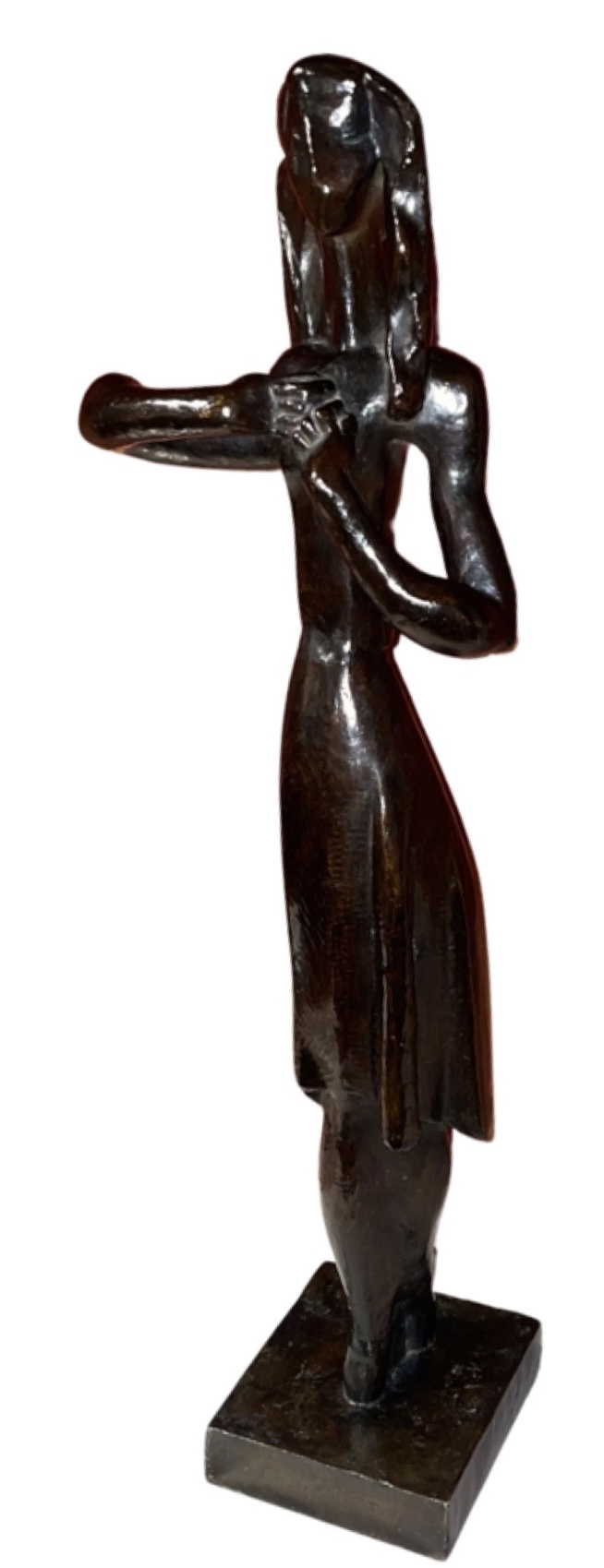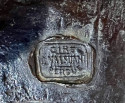Bronze Dancing Figure by Cubist Sculptor Joseph Csaky
Item #3269 SOLD
A rare bronze sculpture by one of the very first and most important artists to explore and popularize Cubism in the early 20th Century, Jospeh Csaky. Born in Hungary in 1888 and educated in the arts in Paris, he was a prolific sculptor, painter and designer. Csaky contributed greatly to the evolution (one could say revolution) in the arts as he shared the vision of his colleagues and contemporaries in developing a style and portraying subjects in new ways. He is considered a major figure in several movements: Cubism, De Stijl and Art Deco.
The piece we offer is a black patinated bronze cast in the technique of “Cire Perdue” (lost wax casting) by the esteemed foundry ,Valsuani,and bears its stamp along with the signature of the sculptor. It is abstracted, borrowing a bit from African arts and forms that would later be echoed in one of his own most significant public sculptures, the Dancer that sits proudly at the top of a fountain in the town square of Szeged, Hungary.
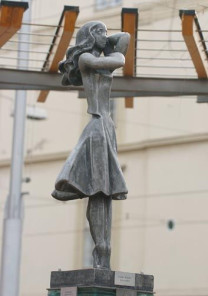
La Danseuse ( A Tancosno)
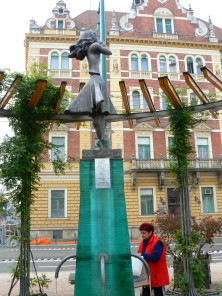
Csaky traveled to Paris in 1908, and within a fairly short span of time, found a place in an artists’ collective , La Ruche, in Montparnasse where many painters and sculptors who ultimately became very famous were part of his circle of influence . Names like Chagall, Leger, Modigliani, Diego Rivera are perhaps more well known to us but they all spent time at La Ruche in the early 1920s.
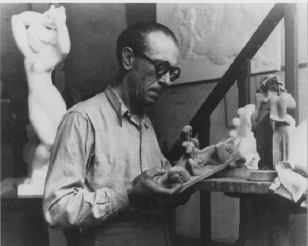
Joseph Casky in his studio
In 1912 he participated in the Salon de Automne and in 1920 Leonce Rosenberg became his sponsor and dealer, purchasing all of his works from an entire year and giving him noteworthy exhibitions. Rosenberg published ”Les Maitres du Cubism” which featured Csaky along with Mondrian, Gris, Braque and Picasso.
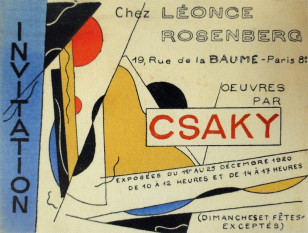
Joseph Csaky fought in the French Army during WWi and became a Citizen of France. After the war, he created art and furnishings for the renowned fashion designer Jacques Doucet. In fact, a sculpture made of rock crystal and obsidian commissioned by Doucet recently sold at auction for over one million dollars.
In 1928 he began to develop a style that was a departure from Cubism with a return to images that were softer, rounder and more representational. He continued to produce works of art through the 1940s, 50s and 60′s.
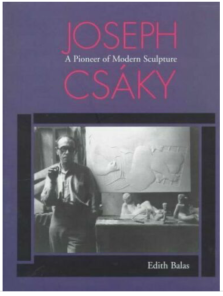
A comprehensive study of his work was published in 1998 by Edith Balas
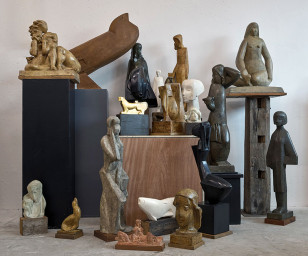
Exposition De Vos Gallery-a retrospective of Csaky sculptures
Measurements
25″ tall x 9″ wide x 5″ deep


